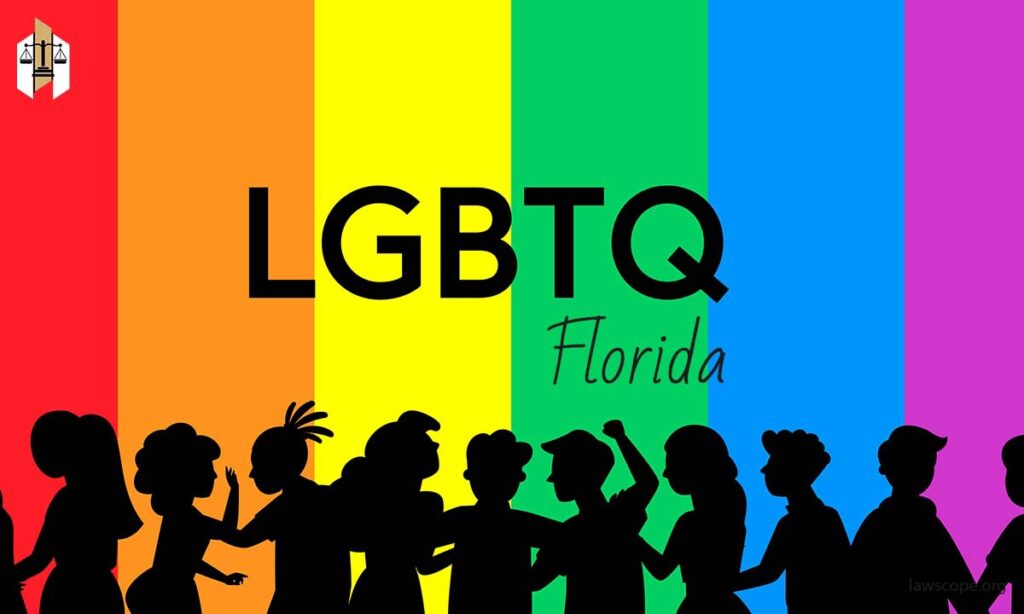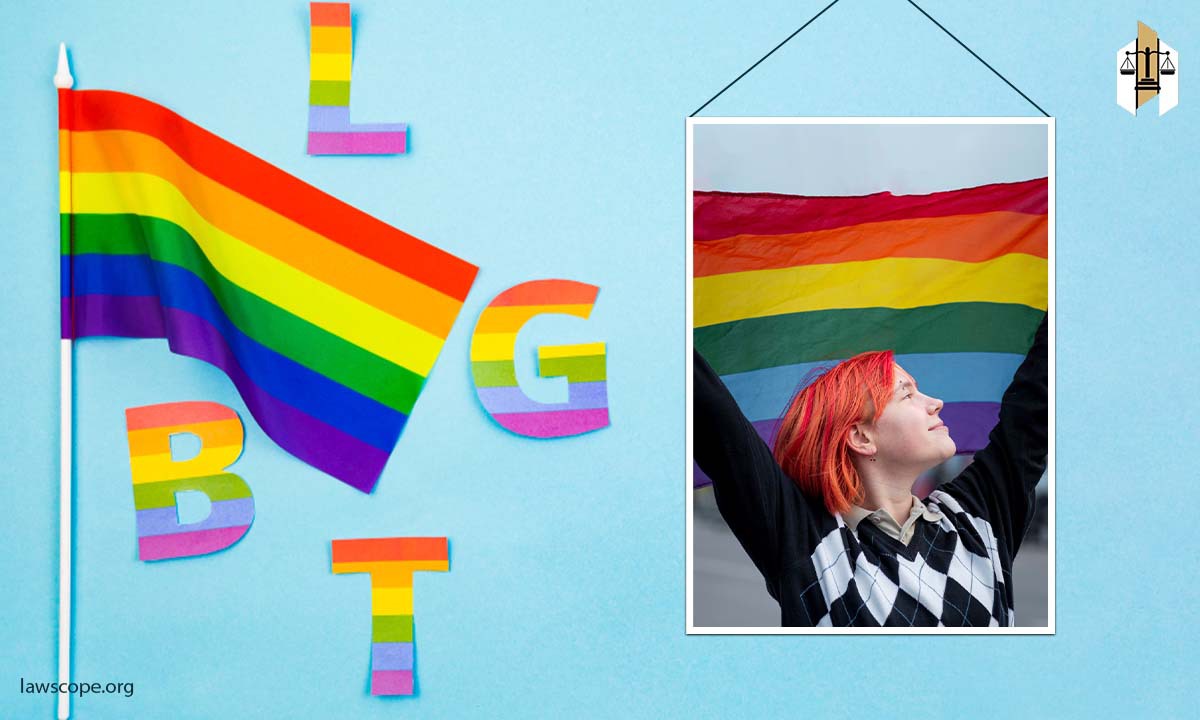
LGBTQ is the most neglected community. There is a huge scope of discrimination within the rainbow community. To see the Florida LGBTQ laws, rights, and protections afforded LGBTQ folks in Florida, one has to navigate the legal landscape.
From the anti-discrimination laws to the recognition of same-sex marriage, laws for LGBTQ carry out societal inclusiveness.
Detail everything regarding Florida LGBTQ laws, from being a well of knowledge to being a well of defense for proper treatment and rights.
Keep abreast of every legislative and judicial change that may be determining the lifestyle of the LGBTQ community within the Sunshine State.
Equip yourself with information to attract equality and acceptance for every human being, no matter their sexual orientation or gender identity.
Delve into subtleties and the meaning of Florida LGBTQ legislation to make society more complete.
Florida LGBTQ Laws: The Clarification

Florida does not have statewide Florida LGBTQ laws that comprehensively protect LGBTQ.
However, over the years, the state has made some key legal protections and developments relevant to LGBTQ rights—these occurred through court decisions, executive orders, and local ordinances. Among the inclusions:
1. Anti-Discrimination Laws
Florida does not have any comprehensive statewide protection from discrimination, including sexual orientation and gender identity; however, some of its local governments have such ordinances pertaining to employment, housing, and public accommodations. For example:
Human Rights Ordinance: a Miami-Dade County ordinance proclaims it illegal to practice discrimination in employment, housing, and public accommodations on the basis of sexual orientation or gender.
2. Equality In Marriages
Back in the year 2015, the Supreme Court’s decision in Obergefell v. Hodges ultimately legalized gay marriage for the entire nation, including Florida.
Florida has the distinction of being the first state to include a constitutional ban on gay marriage in 1977.
It later passed Amendment 2 in 2008, which prohibited same-sex marriages and civil unions by 61.9% of the population.
Starting on January 6, 2015, same-sex marriage is legal in the state because the U.S. district court has found its ban in violation of the United States Constitution in the case of Brenner v. Scott.
In Florida, nine counties, thirty cities, and one town offer domestic partnership benefits. In 2016, this bill was passed to repeal a ban signed into law by Governor Rick Scott in 1868 on cohabitation between unmarried couples.
On July 1, 2016, the bill became law.
3. Adoption, Parenting And Drag Performances
In 2004, the Eleventh Circuit Court of Appeals upheld that law.
However, in 2010, a state appellate court again upheld the ruling that this law was violating equal protection to same-sex couples and children under the Florida Constitution.
The Florida Legislature repealed the 1977 ban in 2015, and the legislation went into effect on July 1, 2015.
In 2016, the Florida Department of Health started automatically recognizing a non-biological mother as a legal parent.
Couples of lesbian partnerships are being allowed access to in vitro fertilization, and since 2016, the Department of Health of Florida has been starting to recognize non-biological mothers as legal parents automatically.
A gay male couple can also enter into gestational and traditional surrogacy agreements with a woman in terms equivalent to a different-sex couple.
On May 23, 2023, Florida Governor Ron DeSantis signed Senate Bill 254, which gave the court the liberty to consider the modification of custody for children who would be receiving gender-affirming care.
In December 2022, undercover officers traveled to Orlando to determine if, indeed, state obscenity laws were being violated in the drag act.
Rather, the state sued the Orlando Philharmonic Plaza Foundation, which presented the show.
The bill criminalizes “adult live performances” in locations where a minor may view them. A judge has temporarily blocked the implementation of the law while the court’s challenge to the law is pending.
He ruled that not every form of drag performance is obscene, and because laws already exist regarding the protection of minors from obscenity, he saw no reason to suspend it.
4. Transgender Rights
Florida does allow one to change the legal gender on birth certificates for transgender individuals according to Florida LGBTQ laws, but not for driver’s licenses or any other state IDs.
In response to an application for an amendment together with an affidavit of amendment of a Certificate of Live Birth and a letter from a physician attesting to the “appropriate clinical treatment for gender transition”, there is an issuance of an amended birth certificate bearing the appropriate gender marker.
For the first time in the history of Florida, a birth certificate was issued with “sex-unknown” in January 2022.
In January 2024, the Florida Department of Highway Services and Motor Vehicles put in place rules that, in brief, would prohibit them from issuing any type of driver’s license bearing a gender marker different from the one at birth.
Trans people have not had access to any bathroom or changing facility consistent with their gender identity at any state school, state university, or any government building for this period: 1 July 2023 onwards.
Now, the institutions have to put up gender labels on the bathrooms and even form disciplinary procedures in the institution for the members accessing the off-limits bathrooms.
The Florida Board of Education has developed an inside-the-institution disciplinarian procedure that deals with the employees who access the bathrooms, which are off limits.
Last 2021, Governor Ron DeSantis signed the bill, banning participation by transgender girls and women in female sports for students.
5. Conversion Therapy
Several counties in Florida have passed these ordinances or Florida LGBTQ laws to prohibit “conversion therapy” of a minor, practices are known to seek changes in the sexual orientation or gender identity of an individual.
The goal is to protect LGBTQ youth from these practices, discredited and harmful. For example:
Palm Beach County Ordinance No. 2017-009 enacts an ordinance prohibiting the practice of conversion therapy on minors by licensed professionals.
6. Access To Health Care
Florida has made great strides in access to care. Florida Medicaid includes health services for hormone therapy and trans people among other treatments and operations within its guidelines.
7. School Policies
A number of school districts in Florida have policies in place on how to protect LGBTQ students from harassment and discrimination.
In some policies, it is actually getting even more detailed: such policies include an inclusive curriculum, gender-neutral facilities, and provisions for all students to join and participate in LGBTQ student organizations.

Related Content: Anti LGBTQ Laws: What You Might Be Missing Out
Final Thoughts
The Florida LGBTQ laws might be confusing, but having it all laid out on a centralized resource like this blog should help make sense of it and keep such laws readily accessible.
From anti-discrimination protections to every last bit of information you need about equality in marriage rights—all in one convenient place.
Stay empowered and educated about your rights and protections under the law of Florida, whether you are part of the LGBTQ community or merely an ally.
Knowing the laws brings furtherance to having a society where all live under the same equality and equity. Keep exploring, advocating, and standing up for equality.
Let this blog be your go-to guide for staying abreast of Florida’s evolving LGBTQ legal landscape.
You May Like Also:


